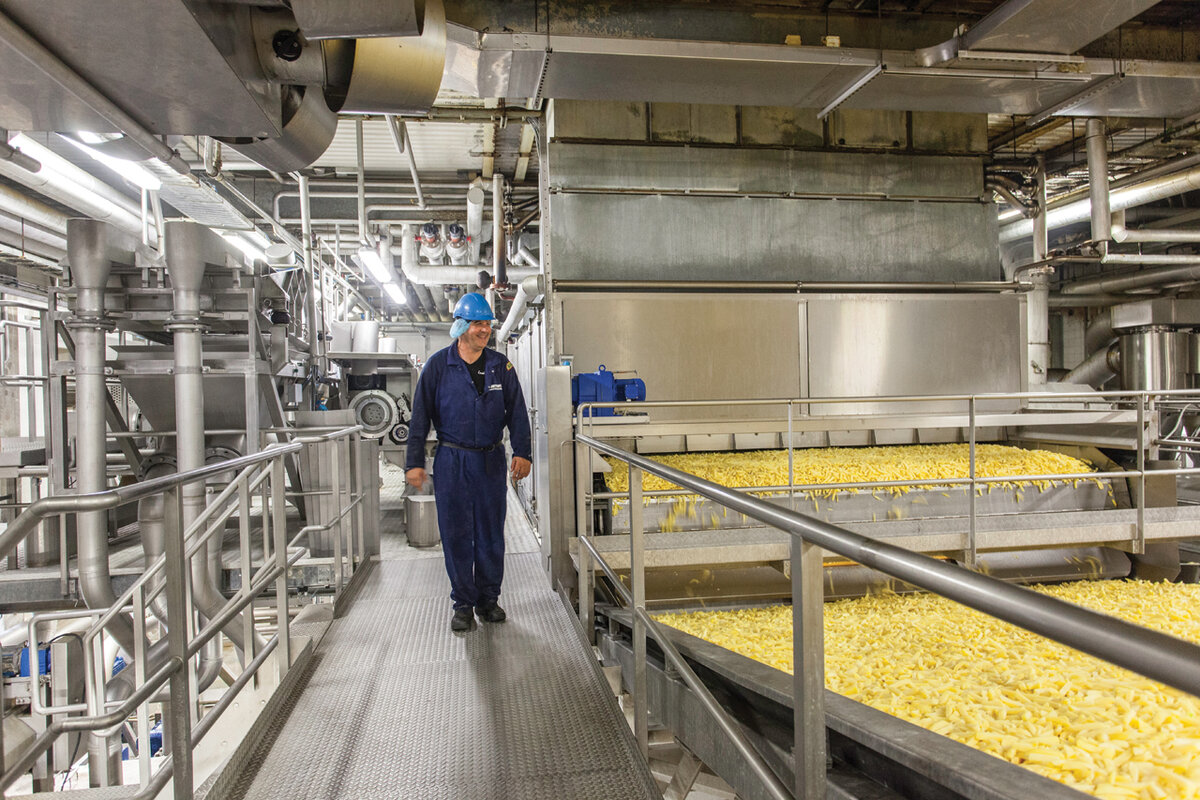After environmental and health gains, soil health becomes Company’s top priority
In the last ten years, Lamb Weston / Meijer reduced CO2 emissions by 30% and used 24% less energy per ton of product. It also increased its use of healthy vegetable oil to 86% of its pre-fried products and uses only recyclable plastic in its packaging. This is disclosed in the latest Sustainability Report (2017-2018) which is published annually and in it, Lamb Weston / Meijer announces soil health as a top priority in collaboration with its growers.
Last year Lamb Weston / Meijer added ‘sustainable agriculture’ to its six focus areas for sustainability. Closer collaboration with growers is key to its Sustainable Agriculture Plan. This focuses on healthy soils as the most valuable and scarce natural resource growers use. Other relevant topics in the plan are water, greenhouse gas emissions, plant protection products and biodiversity.
Dealing with drought
“Declining soil health is a major issue”, CEO Bas Alblas comments. “It is absolutely vital that we tackle this. The biggest impact we can have, is by working more closely with our growers.” Lamb Weston / Meijer feels obliged to support its growers in dealing with the effect of climate change. In 2018 growers had to deal with excessive drought. This underpins the importance of Lamb Weston / Meijer’s collaboration with its growers. Healthy soils support the natural water holding capacity. Combined with water-efficient irrigation such as drip irrigation, the grower protects both crop quality and the ground water level.
‘Sustainable Seven’ achievements
Water belongs to Lamb Weston / Meijer’s Sustainable Seven, which are the seven pillars of their sustainability strategy. Up to 2018 Lamb Weston / Meijer managed to reduce its water intensity by 3.8%, compared to 2008. Other important achievements disclosed in the new Sustainability Report 2017-2018 are 24% lower energy intensity and 30% lower CO2-emissions intensity, both compared to the 2008 baseline.
Cutting the product carbon footprint from field to fork
Next to the reduction of the carbon footprint from processing, a substantial CO2 reduction is achieved by more efficient transport to customers. Optimizing the routing in collaboration with their logistical service partner, and increasing shipments via water- and railways, Lamb Weston / Meijer reduced its annual road kilometres by 6.5 million and cut 6,033 MT CO2 emission from transport. The carbon footprint from field to freezer was cut by 20.4%, and from cold store to customer by 8.8%, both compared to 2008. This means a 20% smaller total product carbon footprint from field to fork.
Caring about the environment, nutrition and health
From a circular point of view, Lamb Weston / Meijer achieved that 97.3% of its by-products and waste streams are reused, recycled or recovered, while products are packed in 100% recyclable plastic and cartons made from 100% recycled, FSC certified cardboard. From a nutrition and health perspective, they managed to increase the use of healthier vegetable oil to 86% of all its pre-fried products sold. In the past 10 years they cut 30% salt from their premium fries and 10% from seasoned potato products, while half of their total volume sold contains no added salt.
If you want to read more about Lamb Weston / Meijer’s achievements so far, and its targets towards 2030, go to www.lambweston.eu/sustainability to view the full Sustainability Report 2017-2018 online or download their summary report, available in seven languages as pdf.
For innovative ideas, recipes and potato inspiration, head over to www.lambweston.eu/uk , call 0800 963962 or email us at [email protected]

